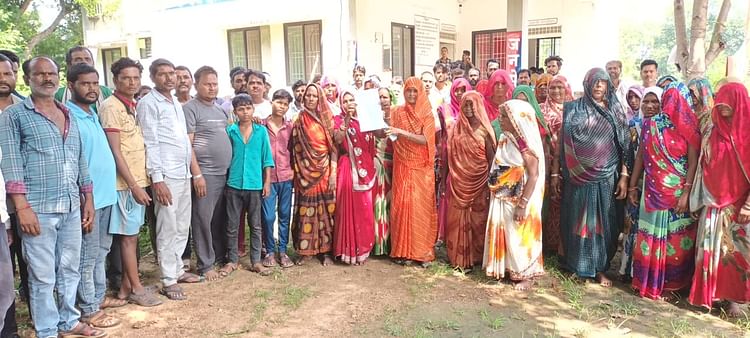Narvai is being burnt in Ujjain unabated. – Photo: Amar Ujala Expansion After the harvesting of wheat crop, the work of burning Narwai is going on fast in Ujjain district. The district administration is very serious about burning Narwai. Instructions have also been given to take strict action against those who burn Narvai under the section 18. Despite this, the work of burning Narwai is going on in the district. The strict attitude of the administration is not affecting the farmers. After harvesting the incidents of stubble burning in the fields have been increasing continuously for the last few days. Have been Most of the farmers are burning stubble in the fields during the day, and some in the dark of night. Due to this the pollution level of Ujjain is increasing. This is the reason that after burning stubble on the roofs and verandahs, galleries and roads of many houses in the city, the ash particles reach by flying. The officers of Pollution Control Board, District Administration and Agriculture Department have failed to stop stubble burning. The officers of the Pollution Control Board do not consider it their responsibility to control it. The incidents of stubble burning have increased since last one week. In other villages, farmers are setting fire to the stubble in the dark of night. Apart from this, incidents of stubble burning have also increased in the fields adjacent to Chintaman Bypass, Indore, Dewas and Agar Road. Residential areas and commercial establishments have also been built around the agricultural land in the last few years. In such a situation, due to burning of stubble, there is a danger of coming in the grip of residential and commercial areas. On burning the stubble This is the provision of fine
2 acres of land – 2 to 5 thousand fine 1681836291 2-5 acres of land – 5 thousand rupees fine
More than 5 acres – fine up to thousand rupees Soil is damaged by burning stubble: Nayak
Deputy Director RPS of Agriculture Department Nayak said that farmers often try to prepare the field for the next crop by setting it on fire to avoid the hassle of removing the stubble after harvesting. Due to burning of stubble, the beneficial bacteria present in it are destroyed by burning. This also spoils the soil. The land becomes hard. The water holding capacity of the land is less and the crops dry up. The trees and plants on the border of the field get destroyed by burning. The proportion of nitrogen and phosphorus decreases in comparison to carbon in the fields. Earthworms get destroyed. This reduces the fertility of the land. ,














Comments